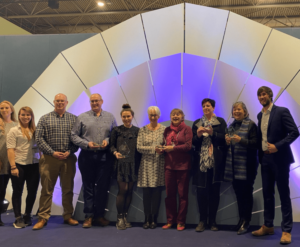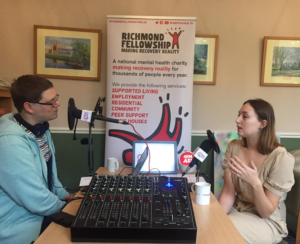 Our DVIP and MyTime divisions were partners in the recent three year Drive pilot, working with the perpetrators of domestic abuse. The pilot’s evaluation received widespread coverage this month – but what next?
Our DVIP and MyTime divisions were partners in the recent three year Drive pilot, working with the perpetrators of domestic abuse. The pilot’s evaluation received widespread coverage this month – but what next?
The prevalence of domestic abuse in the UK is staggering – 100,000 people are at risk of domestic homicide or serious harm every year. Historically the response to domestic abuse has focused on expecting the victim to leave and start a new life in a new community. Often the perpetrator is left to continue their life as normal and frequently repeats the same behaviour with new partners, creating more victims. Currently 1 in 4 domestic abuse perpetrators are repeat offenders, and only 1% of perpetrators receive specialist intervention to address their behaviour.
Richmond Fellowship’s specialist domestic abuse divisions, DVIP and MyTime, know we need to tackle the root cause, and together have nearly 30 years’ experience and expertise developing and delivering perpetrator interventions. We respond to and support perpetrators through local behaviour change and risk management services whilst also providing vital support services to women and children.
Since 2016 we have been part of the Drive pilot (led by Safelives, Respect and Social Finance), delivering a programme that challenges and seeks to change perpetrator behaviour. Drive was an intensive and multi agency approach that ran in Essex, South Wales and West Sussex initially and was then replicated in Croydon, Worcester, Birmingham & Sandwell and Cardiff. We were partners for West Sussex and West Midlands.
The recently published evaluation of this three year long pilot demonstrated the clear potential of the Drive approach. For instance the number of Drive service users perpetrating abuse types reduced as follows:
– Physical abuse reduced by 82%
– Sexual abuse reduced by 88%
– Harassment and stalking behaviours reduced by 75%
– Jealous and controlling behaviours reduced by 73%
The evaluation received wide spread press coverage, and saw more than 80 organisations sign a call to action for the government to create a domestic abuse perpetrator strategy. The joint call for action rightly highlights the need for a national response – one that incorporates multi-agency approaches such as Drive. But most importantly it also highlights that the vast majority of perpetrators are not able to access Drive type interventions.
So what next? We want to see more evidence-based activities that support social change to end domestic abuse. Sustainable government funding will be key to enabling a national roll-out of effective multi-agency responses like Drive.
We also want to apply this overlapping service approach to the Recovery Focus Group. Domestic abuse is everyone’s business and it crosses over all service provision across our group.
We currently deliver a number of innovative service models that not only work with the individuals that use abusive behaviours in intimate relationships but also the victims, survivors and children. Our vision is that domestic abuse services will be fully integrated into services across the group.
Over the next three years we will be looking to expand our domestic abuse services across the UK in line with the group’s existing provision.
 Richmond Fellowship’s Old Moat Garden Centre in Surrey has won another prestigious award, this time competing against a range of retail organisations from all over the UK.
Richmond Fellowship’s Old Moat Garden Centre in Surrey has won another prestigious award, this time competing against a range of retail organisations from all over the UK.

















